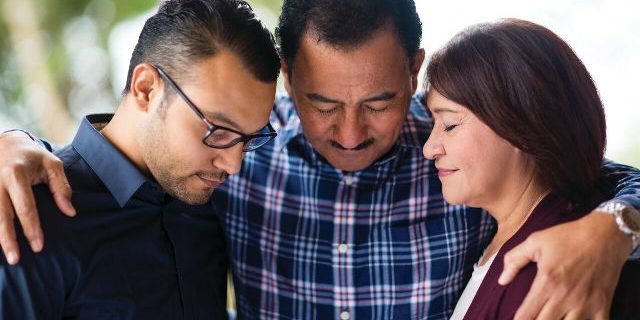Opioid addiction is a nationwide epidemic. Approximately two million Americans abuse or are addicted to opioids, and it affects all ages and races. If your loved one is suffering with an opioid addiction, you may not know where to turn or what to do. You may feel overwhelmed by the outpouring of advice you’re getting from the Internet or family and friends who want to help. Addiction is a chronic brain disease that devastates not only the person suffering from it, but their family and loved ones as well. An opioid addiction can be life-threatening. It’s just as important to understand what not to do as well as what to do when you’re dealing with a family member struggling with an addiction. Families dealing with a loved one’s opioid addiction should consider substance use disorder treatment to ensure they receive the best possible care and support.
Loved One with an Opioid Addiction
Tips for Helping a Loved One with an Opioid Addiction
Research shows that recovery is most effective when families are supportive and involved in the process. Here are some do’s and don’ts when it comes to helping your loved one with their opioid addiction.
Don’t…
- Criticize your loved one. An addict will often engage in behaviors that are hurtful to the people that they love. The pain and anger caused by their addiction may make you want to lash out. Criticizing them will not help the situation. Try to remember that they are suffering from a disease that they are unable to control without the right treatment.
- Enable their behavior. A common mistake is to enable an addict by giving them resources such as money, a car and a place to live that can allow them to progress further into their addiction. It’s perfectly normal to feel like you don’t want to turn your back on them, but unintentionally helping them maintain their lifestyle is damaging. Say no and stick to it.
- Assume they can just stop. Addiction is a chronic brain disease and the person cannot just “stop”. Telling them to simply quit will never work. They must be in an effective treatment program that can help them heal.
- Expect them to get better right away. It may not be easy to get your loved one into treatment and they may resist at first. And even if they agree to treatment, relapse is a possibility. Addiction is a complicated disease, and this is a normal part of the process. Keep in mind that recovery is a lifelong process, with many triumphs and setbacks.
Do….
- Seek outside help. Find a support group and attend regularly such as Nar-Anon, Families Anonymous and Co-Dependent’s Anonymous. Attending individual and family therapy programs that specialize in addiction can help give you the support and resources you need. Addiction is devastating to families, and you don’t have to go through it alone.
- Provide the right kind of support. Let the person struggling with addiction know that you are there for them, but that you will not contribute to their addiction. Research addiction treatment centers. Let your loved one know you will support them in their entry into a recovery program. Offer them the opportunity to make changes. Even if they don’t get into treatment right away, they will know that help is waiting.
- Set boundaries. Saying no can be extremely difficult. But maintaining your safety and integrity when dealing with someone who is suffering from addiction is imperative. Do not put yourself in a position where you could be abused mentally or physically. If it means living away from the addicted person or saying no to giving them money or other resources, so be it. Setting healthy boundaries is good for everyone.
- Educate yourself on the disease of addiction. Educating yourself on how addiction affects the brain and body of the individual, as well as its effects on families is key to understanding how to move forward in a healthy way. You may not be able to control someone’s addiction, but you can arm yourself with the knowledge and the tools necessary to support both their recovery and your own healing process.
With expert guidance, evidence-based therapies, and a caring community, we provide a comprehensive approach to recovery from addiction here in Chicago, IL. Contact us today to see how we can help.


